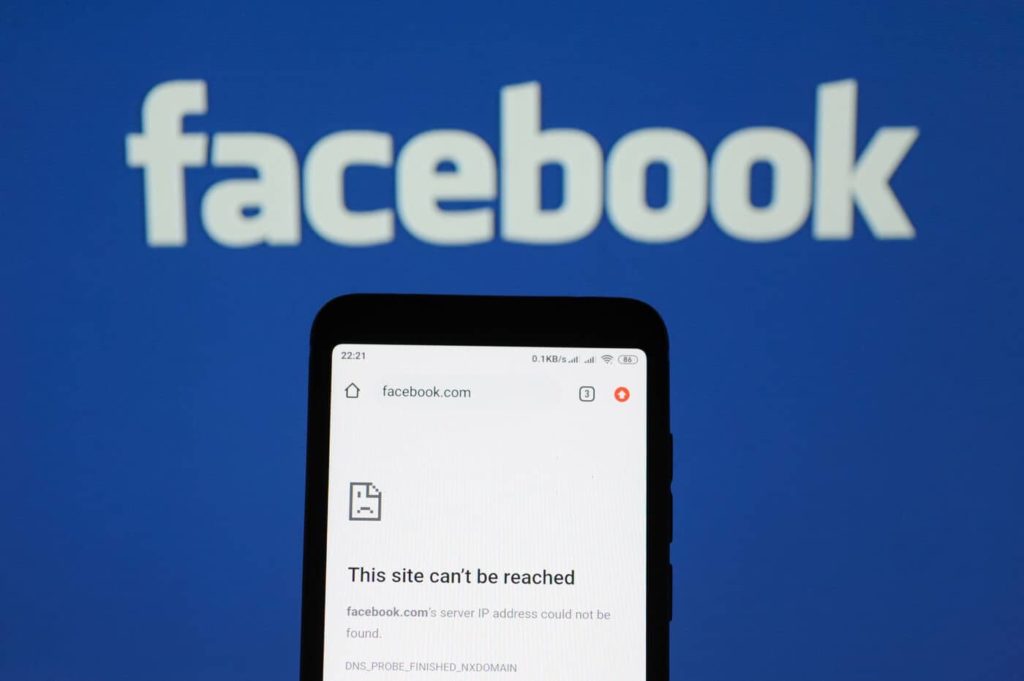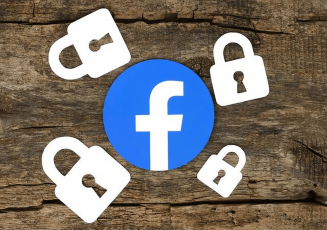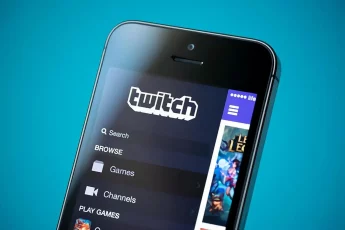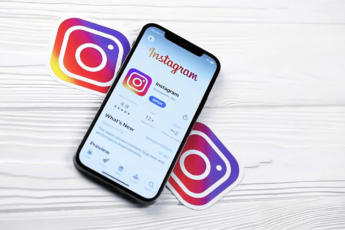Facebook Marketplace has had a checkered history. It went from a miserable failure to a great trading platform after its re-introduction in 2016. Today, it’s a great place to sell and buy anything online. And don’t underestimate Facebook’s sheer size. The billions of users active on Facebook make it easy for numerous listings to be available for any user, regardless of the physical location.
However, nothing is ever perfect, including Facebook. Hence, the platform has some disadvantages, and the Facebook Marketplace scams are among the main ones.
If you’re going to join the Facebook Marketplace world, you must keep yourself safe from those scams. That means knowing what threats you could face, how to prevent them, and knowing how to deal with them if they happen. Let us tell you all about it!
Facebook Marketplace top scams – The quick list
We will deal with each type of scam in detail later in this article. But for those who are in a rush and only need to read the gist of it, here’s our quick list.
- Counterfeits. There are expensive products on sale as legitimate while they’re fake.
- Gift card scams. The scammer will request payment in gift cards. Then he ghosts you. Since the cards are anonymous, there’s nothing you can do.
- Bait and switch. One product is in the ad, but the actual item is of lesser quality.
- Broken merchandise. Broken things are sold as new, functional things.
- Fake rentals. Listings of houses and flats for rent that are not there.
- QR code scams. A QR code arrives. Supposedly it ensures that the buyer has the correct account. Then the seller gets charged instead as the code gets scanned.
- Car deposits. A buyer pays a car deposit (or advance for something else) for a fraudulent listing.
- Overpaying. A seller claims overpayment. He shows a screenshot (fake) to make his case and then asks the buyer to pay for the extra.
- Fake giveaways. Giveaways that are actually phishing attacks.
- IELTS/TOEFL and other certificates. A seller claims he can provide you with a false test certificate.
That’s the quick list of 10 scams. But there’s a lot more to be said about each type of scam. And there are some things you can do when you fall victim to such online scams. But, of course, the optimal thing is to never suffer from this problem. And you’re on the right track for that since the first step is awareness.
15 most widely practiced Facebook Marketplace scams today
A Facebook Marketplace scammer’s first order of business is to trick you. His job is to make you pay for something you’ve never wanted, for a start. Then you won’t get the merchandise, or it will be very defective, or it will turn out to be something very different than what you expected.
However, that’s not the whole story. Facebook Marketplace allows both buying and selling, and scams run both ways. So you can also get scammed as a seller by somebody who presents himself as a legitimate buyer. Then he’ll play tricks to squeeze some money away from the seller.
In Facebook Market, as in so many other things in life, prevention is much more effective than any posterior measure. Prevention starts with awareness that leads to recognizing a fishy deal when you come across it. So let’s look at the most common scams you could find on Facebook Marketplace today.
1. Mailed items
You need to know that mailed items are riskier as potential scams than picking things up yourself. Don’t forget that you trust your seller to send you the items after you’ve paid for them. And they could decide not to do it.
You can lower the risk with the Marketplace’s location function. It allows you to pinpoint your physical location and set a radius around you of a few kilometers. Thus you can set up your transaction for meeting the seller personally, seeing your product, and picking it up.
Of course, not every city or town has an economic activity that will allow you to find all the products you want. But if you are in this situation, we advise you to buy those things in a trustworthy web shop, not through Facebook Marketplace. It’s clear how a given Facebook Marketplace trade can be attractive as it would seem to save you a few dollars on an object you want. However, if you lose everything because of a scam, you will wish you had gone to Amazon –or whatever similar option.
If you absolutely must get a product mailed via Facebook Marketplace, you must ensure to use Facebook Checkout to protect your purchase. Also, ask for a working trace number for following your parcel on the web.
2. Counterfeit merchandise
Counterfeit items have been the bane of trading since times immemorial. Facebook Marketplace couldn’t be the exception. However, the Facebook trading platform amplifies the risk of buying counterfeits exponentially. The website is global. Anybody has access, and tracking down the sellers can be a nightmare. So if the threat of counterfeit is real wherever you buy something (online or otherwise), Facebook Marketplace makes it much more manageable.
Counterfeit merchandise looks like the real deal on the surface and gets a price tag with the legitimate product.
This merchandise can be anything from designer clothes, cosmetics, fragrances, medicine (against
3. Gift cards
Asking for payment and not delivering the goods is probably the oldest trick in the scammer’s book. While the original scam probably relied on gold’s universal value, the ongoing version of this stunt on Facebook depends on gift cards.
It’s easy to see why. They’re like cash; if you’re on the right website, except that you can’t cancel them, retrieve an unrecognized operation. They’re very much like gold in that once you possess one, there’s nothing anybody else can do about it, and they’re perfectly anonymous.
So one of the worst scams is a supposed seller asking for payment in gift cards. And once he has the gift card, he disappears or ghosts you.
Once that happens, the gift card you used to pay for it is impossible to recover or trace.
4. Bait and switch
Bait and switch is also a time-honored scam. The false seller advertises a high-quality product at a low price. Then, as the buyer shows interest in it, the seller informs him that the sale was too successful and he is fresh out of the item in question. However, the seller will say there is this other product which is very similar indeed, but not as cheap, or not as good. Here, the buying momentum created by the fake sale can help push the buyer far enough to complete the purchase.
As scams go, this one has a great advantage for the scammer: it has the buyer’s blessing.
5. Advance delivery/shipping fees
Just like gift card scams, another similar strategy that most fraudulent sellers apply is asking for advance delivery or shipping charges. They convince buyers to pay advance shipping charges so they can safely dispatch the product to you.
While not all sellers asking for such payments may be frauds, you can’t risk your money. And most of them do disappear after receiving the fees, leaving you with nothing but monetary losses.
6. Broken merchandise
Broken products are not rare to find for sale on Facebook Marketplace. Unfortunately, as a buyer, it’s exceedingly tricky to asses if an article is in working order from a picture alone. And that’s not taking into account that photos can be altered to make the thing look better than it is.
7. Fake rentals
There are plenty of rentals on Facebook Marketplace. But unfortunately, they break new ground for digital fraudsters. Altered pictures, bait-and-switch tactics, or offering properties that belong to somebody else.
If you rent a flat or a house, the least you must do is pay a physical visit to the place before any money changes hands or you sign any contracts.
The same applies to the buying market. It’s not exclusive to rentals.
8. Fake QR codes
The State Bank of India warned about scanning QR codes when selling something on Facebook Marketplace. But, unfortunately, that’s how frequent these scams are.
A criminal initiates contact with you, pretending to be interested in the item you’re selling. He even haggles a bit, making everything look authentic. At some point, they pay a fraction of the transaction’s value. Finally, the time comes to pay the remainder. That’s when they’ll send you a QR code to scan. Why? So that the money arrives in the “correct account.”
The catch is that you end up being charged, not paid. So the scammer runs away with your payment and your product too.
9. Card deposit or advance payment scams
Vehicles have found their niche within the Facebook Marketplace ecosystem. And they’re a famous market too. However, if the seller wants a card deposit, it’s a red flag. The reason will be that they need you to put forward a fraction of the car’s value so they can hold it for you instead of selling it to somebody else.
So, the prospected buyer pays the deposit. Then the ad goes away. It turns out that the address you had so you could meet the seller and see the car is false. And you’ll need something of a miracle to get your money back.
While this “advanced payment” scam could happen with any product, in theory, the vehicle market is where it does the most damage. That’s because 3% of a car’s value is much more than the same percentage of a shirt, for instance.
The additional problem is that an arrangement like this makes sense and is pretty standard in the real world. However, suppose it happens on Facebook Market. In that case, you should be very skeptical and make sure that everything about your seller (name, address, and more) is legitimate before you engage in business with them.
10. Involuntary overpayment
Sellers are not the only type of user out to get you in Facebook Marketplace. Buyers can be scammers too.
The “accidental overpayment” consists of your buyer showing you a payment receipt (fake) that shows he paid more than the transactions’ worth to you. A graphic using Paypal’s graphics is typical for this.
Then, the “buyer” keeps insisting on you giving him back the excess amount he sent you.
11. Fake IELTS, TOEFL, or other exam certificates
It is yet another kind of scam that can happen anywhere. But the fact that it’s not exclusive to Facebook Market doesn’t mean you should let your guard down.
Standardized tests are essential to show the proficiency of the English language for non-native speakers. But many other types of tests are imperative (USMLE is one). And Facebook accounts offering certificates for those tests have increased in recent years.
These fake things are expensive and could set you back by a couple of thousand dollars.
Remember this: the only legitimate way to get a TOEFL certification is to take the test and pass it. Anything else is facing, and you should be wary of any other options for certification because there’s every chance that if you try to use it in the real world, it will be identified as fake.
Worse, there’s no guarantee that you’ll get your certificate once you pay. The seller can as quickly disappear once he’s received your money.
These tests are essential. But no shortcut is going to substitute for the original certificate. Remember that very often, the testing company has to send your results to the company or university in question.
12. Fake giveaways
Giveaways are always attractive. And scammers and hackers know that, so they can load a web page with fake giveaway ads and links. The idea is to have users click on those links and ads. Then, the malware they intended to inject into your device arrives home.
The malware is a means to an end, of course. But, unfortunately, the end is to steal your most personal and sensitive data so they can abuse it to their heart’s content.
While this kind of thing does occur on Facebook, Marketplace is far more frequent on Instagram or Facebook (the social media sector, not the trading platform).
So whenever you come across a giveaway ad, ask yourself if the ad includes the account behind the supposed giveaway, if it’s spelled correctly, and if the text looks and feels like it was translated using Google or something even worse.
Be aware that cryptocurrencies are one of the favorite pretexts for fake free giveaways.
13. Fake accounts
Fake accounts are a dime a dozen in Facebook Marketplaces and Facebook regular. Of course, the accounts themselves are not a scam but the tool the scammer needs to do his thing, but let’s consider them.
Scammers don’t use their real Facebook accounts. They want their identity protected, as any criminal would do. So they will operate from a fake account, so it’s good for you to know how to spot one.
See your prospective seller’s account. How long has he been active on the platform? If his history selling stuff on Facebook is long, he’s probably legit. On the other hand, if the account was created last week, you should think twice before engaging this seller.
Remember that Facebook has been around since 2006 and is almost a must-have account for most of the world’s internauts. So an account created only recently is suspicious, let alone doing business with the owner.
Does the bio look weird? Is it emptyish? Only a handful of friends or no friends at all? Be suspicious and take care of your Facebook account security.
14. Google voice scams
You initiate negotiation on FB Marketplace, then you and your counterpart take it elsewhere, like WhatsApp. Then the conversation turns, and the prospective buyer asks the seller for authentication with a verification code. This fake buyer uses the seller’s phone in a 2FA test sent with Google Voice. So now, they can create a new account using the seller’s phone number.
15. Insurance scams
Fraudulent buyers can also try to hit users selling expensive merchandise. They will agree to pay the shipping costs, then send an invoice (fake) to prove themselves. Oh, but didn’t they mention the insurance? Well, it’s just this tiny payment, but we will all be better off, more reassured if you just send the money for that. It’s an expensive piece of merchandise we’re dealing with, and we don’t want any unforeseen trouble to affect our transaction, right?
Read also: Top VPN scams to look out for today.
Be proactive: How to prevent Facebook Marketplace scams

So now you know some of the hurdles you may face as an active Facebook Marketplace member. Let’s turn our attention toward prevention now. Please read the following safety tips and try to adopt all of them, as far as they apply to you.
1. Take time to see the seller’s reviews and profile
So you found this thing you’d like to buy. Great. Look at the seller’s profile before you try anything else.
Has he been around for long? Does he have many reviews? Are they good?
Make sure that the seller’s account is legit and that he has plenty of good reviews. The more expensive the product he sells, the more careful you need to be.
2. If it seems too good to be true, it probably is
So you find this incredible webpage offering these luxury items at meager prices. You’re probably correct if your first instinct is to think it has to be too good to be true.
Remember that plenty of counterfeit merchandise is going around on this trading platform. And that it’s a more straightforward and accurate explanation of the listing you found.
3. Pay through trustworthy means
Gift cards are not currency, so don’t use them as they were. Whenever you agree to settle a deal using gift cards, the chances are that you’re setting yourself up for a scam. Worse, you are doing half of the work for the scammer.
Paypal has made a name for itself for a reason: it’s fast, reliable, cheap, and it can deal with tricky situations.
Facebook Pay doesn’t have the long history and reputation of PayPal. But you may use it anyway. In addition, some purchases are protected if you use this payment method, which works in your favor.
4. Do not scan QR codes
If a potential buyer sends a QR code to you, never scan it. Remember this: QR codes are for paying money, not for getting payments.
5. Think things through before you send your money away
You must be sure that you trust the seller before finishing any purchase. So find reputable sellers, and stick to them.
If the seller demands a deposit from you, think for a while about how it makes sense within the overall trade.
Deposits scams are more frequent with cars and real estate, so if you’re interested in these markets, remain extra aware. If you are looking for a car, a flat, or a house, it’s ok for the first contact to occur within Facebook Marketplace. But if you can’t meet the seller in person or see the goods, you’re dealing with the wrong guy.
6. Always communicate through Facebook Messenger
We know Facebook Messenger is neither that extraordinary, versatile, or fun to use. But if you do all your communications through it, there will be a record on Facebook of everything that transpires.
If you can’t stand Facebook Messenger, then you can use some other communications technology as long as it provides some records.
How Facebook prevents scams
Facebook has three features that help with preventing scams:
- Review system. As soon as a seller has collected five or more reviews, the rest of the platform can see them. Facebook claims that these reviews help improve safety within the forum.
- Purchase protection. Your purchase can enjoy Facebook’s security if you pay through Facebook Pay for eligible items. With this protection, the seller doesn’t get any of your money until the buyer (you) lets Facebook know it has the merchandise.
- Resources. Facebook has many web pages explaining the platform’s works and how to buy and sell anything correctly and with caution.
I got scammed on Facebook Market place. What do I do now?
Let’s face it. Some scammers are true professionals, and they know their craft. So even if you do everything right, you could still end up in a bad situation in which the scammers succeed over your precautions. So here’s what you can do:
- Call your financial institute, and have your account blocked. If the scam you fell for involves your account or credit card, have them blocked before the damage is done.
- Press charges. Go to your local authorities. Most jurisdictions will consider Facebook scams as punishable offenses.
- Make sure your devices are clean. Is your PC free of malware and viruses? Is your phone? It would be best if you were sure. Use a top-notch antivirus suite like Kaspersky.
- Report the scammer. If the scammer’s listing is still online, report it and make Facebook work for you. We will tell you how in the next section.
How to report a Facebook Marketplace scammer
Facebook Marketplace’s rules are consigned in the FB Marketplace Commerce Policies. In addition, fraudulent reports are punished, as stated in the Purchase Protection Policies. So if a scammer hits you and is in violation of the Commerce Policies, here’s how you report them.
Reporting a buyer
- Click on “Your account.”
- Now pick “Your listings.”
- Click on the listing involving the buyer you wish to report.
- Select the message between the buyer and yourself.
- Click on “…” (the three little dots).
- Pick “Report buyer.”
- Follow the on-screen instructions.
Reporting a seller
- Go to the Facebook Marketplace ad and click on the seller’s listing.
- Click on the seller’s name.
- Next, click on “…” (the three little dots) you see.
- Click on “Report Seller.”
- Follow the process.
Read also: Top PayPal scams and how to avoid them.
Conclusion: Stay safe on Facebook Marketplace
Since you’ve read this far, you now know that scammers have lots of tricks to play on you using the Facebook Marketplace platform. Some of their schemes are crude, like simply retaining the merchandise. But some others are pretty sophisticated.
However, there’s plenty you can do to keep yourself safe. See a user’s profile in detail, read the reviews, use Purchase Protect, and do not pay with gift cards. And never underestimate the power of sheer common sense.
Now that you know about the scams you can find in FB Marketplace, you have achieved the first step in securing your shopping experience: awareness.
So go on and be wise about your purchases. But, above all, have a happy shopping while always staying safe!
FAQs
Yes, it’s possible. Unfortunately, many criminals on the platform try to get their way with unsuspecting buyers and sellers. The article explains in detail the resources they have to scam you and the resources you have to thwart them.
A safe payment method will provide a record of payments made and received. As such, credit cards, PayPal, and Facebook Pay are all good options. However, you should always try to use Facebook Pay when possible. It will afford extra protections within the platform that other standard payment systems can’t give you. But whatever you do, never accept to pay for a transaction with a gift card. Madness lies that way.
Unfortunately, there is no silver bullet on this issue. You will need to take a careful look at the whole picture. Please consider the seller, his account, his account’s longevity, reviews, and how reasonable it is to have such a product at such a price. In the end, only the holonomic picture can illuminate the question, but there is no set of thumb rules that can give you a guarantee.
You must have a Facebook profile if you wish to buy anything on the Facebook Marketplace. A legit buyer will likely have a robust one, while a scammer likely will have a recently created skeletal profile. But please remember that some users’ privacy settings may limit how much information you can glean from their profiles.
Instead of regretting it, you should step up quickly to prevent the damages due to the possible scam. Here are a few things that you should immediately do.
-Have your credit card or bank account blocked
-Press charges.
-Scan your computer and phones for malware.
-Make a report on Facebook.
It’s best not to offer your contact information and full name. For example, you can meet in a public place such as a shopping mall, fast food, or police station. And, of course, you should avoid giving out accounts or other personal information, too.






